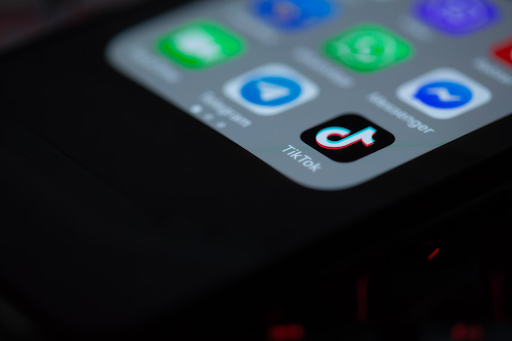
TikTok, though still up and running, may not be for long as Congress passed a bill on March 13 that could “require the app to part ways with Chinese parent company, ByteDance, within 180 days or face a ban in American app stores.”
This ban comes after heavy discourse surrounding the app’s association with China and how that would affect United States security. An article from the New York Times outlines that the largest discourse surrounding the ban is its effects on the First Amendment, saying, “‘A broader, government-imposed ban that stops Americans from using an app that allows them to share their views and art could face legal challenges on First Amendment grounds.’”
“First Amendment experts have said that justifying a ban would be a high bar for the government to clear,” the article said.
Concerns surrounding First Amendment protections are incredibly valid, as they hone in on the idea that banning TikTok would enact a cultural shift like never before. Taking away the public’s main source of information sharing, our nosy materialism-saturated culture will be destroyed.
TikTok picked up speed as a well-used social media platform during the COVID-19 pandemic in 2020. Users were stuck inside, so what better way to pass the time than posting funny videos?
Taking on a Vine-like presence, the app however quickly went from laughs to influencer overload. Plagued with societal pitfalls, TikTok has undoubtedly been influential in the fashion, food, publishing industry, crafting industries, etc. in both positive and negative ways.
It has impacted businesses like Starbucks when users rallied to boycott against injustice. It’s even impacted politics as we know it because of how easily and quickly ideas can circulate, as seen in the summer of 2020 with Black Lives Matter protests.
TikTok especially encourages people to be headline regurgitators. What used to be incessant Instagram story repostings of news stories is now hopping on TikTok to give a 30 soundbite of our thoughts on incredibly gruesome matters — ones that we have become desensitized to.
We shouldn’t be so flippant talking about injustice. We shouldn’t be scrolling video after video of everything wrong that has ever happened and that we have ever done. Comment sections of “hope-core” pages are sighs of relief one after the other, because when online that mindset is hard to find.
The discourse of all natures has crossed the app, so while removing it would be a big hit to how global citizens share ideas, the exact impact that would have must be made a big deal.
People’s jobs would be on the line. Clothing stores would suffer immensely — how would we know what to wear? Even mega-storefronts like Amazon would take a massive hit without daily Amazon hauls gracing our for you pages’ (FYP) and tickling the parts of our brain that simply need that plastic desk organizer.
Without TikTok, we would have no choice but to make decisions for ourselves. Well, until another app comes along and we do the same thing over there — but each app has branded itself with its harmful badge of honor.
For Instagram it was photoshopped selfies, for Snapchat it was filters and for TikTok it was overconsumption. Only outliers like Pinterest might be on the rise, but there are no other platforms that encourage conversation as TikTok does. Instagram Reels are somewhat the same, but the varied curation of FYPs on Instagram doesn’t have the same effect as it did on TikTok.
While there are mixed reviews on whether or not the United States government will actually go through with the ban, we need to take note of what our future could possibly look like if it does. Everyone wearing different types of shoes and not obsessing over thirst-edits — what will we do?
Banning TikTok would be a major hit to discourse, but from cave painting to the printing press, humans have no problem finding ways to communicate. Even if we have to pull a Martin Luther and post the latest ideas in the middle of a town square, we will find a way.
Because that’s what we’ve been craving all along. The isolation brought about by the pandemic caused a longing for “I love your outfit!” and “Where should we get dinner?” conversations that once were an everyday utterance. Maybe without TikTok, we can be our artistic, fashionista, opinionated selves without the urge to post it.
But then what’s the point if no one sees it?
We will find other ways. People love people, and we love to be connected — social media and TikTok especially allow us an easy path for lazy intimacy, but maybe, with a banning, we can get out and actually live in the ways we crave.
Maybe, without TikTok, we can finally have the “Sunday reset” of a lifetime. We can enjoy ourselves and our lives unbeknownst to the wannabe lifestyles people are getting paid to say they enjoy.
One of the app’s favorite trends is people rediscovering what they loved from their youth, capitalizing on the feeling of nostalgia. There is a literal “sound” of mourning doves cooing, seeking to invoke the peaceful days of our childhood. Banning TikTok would mean we can finally just all sit outside together and hear them. For real. We won’t be silenced, we won’t be left in the dark. We would be people again.


















